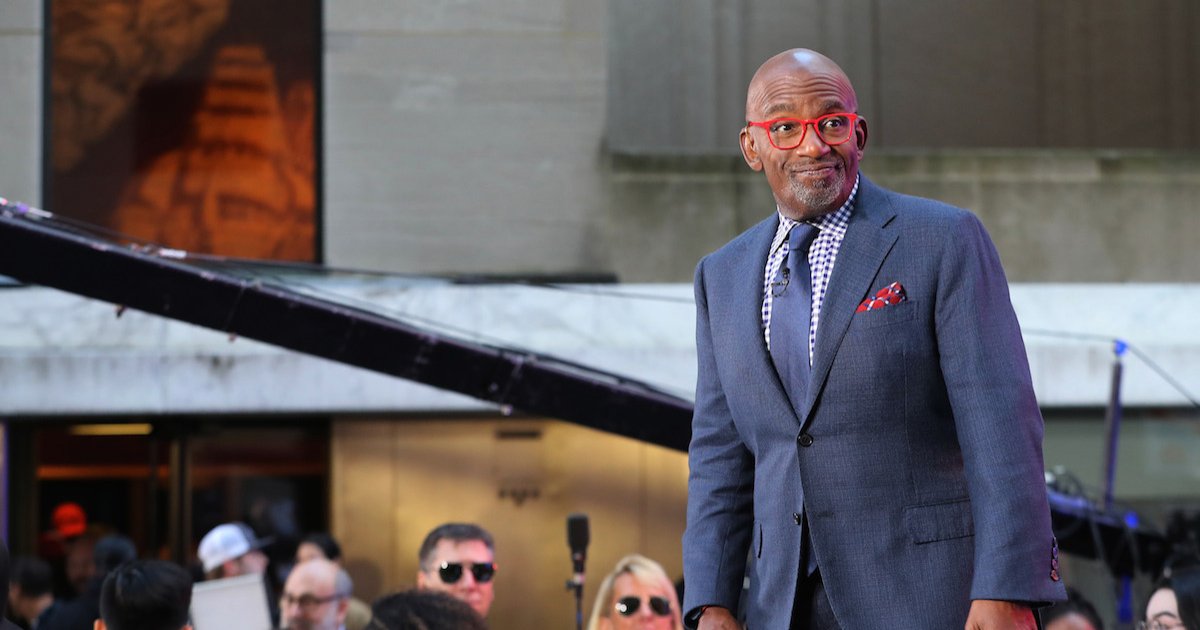A Dancing Machine
- Today co-host Al Roker shows off some seriously infectious energy with his adorable dance moves on an Instagram post.
- The prostate cancer survivor can’t get enough of Grammy-nominated artist Jon Batiste’s new tune, I Need You.
- SurvivorNet talks to a cancer survivor who danced through her recovery as she re-connected with her body.
Roker, 66, is one thousand percent feeling it as he jams to Jon Batiste’s new tune. “I defy you to not dance listening to @jonbatiste and his new song #ineedyou,” he wrote. “We had an exclusive performance by Jon this morning on @3rdhourtoday,” which he co-hosts.
Read MoreView this post on Instagram
Batiste, a seriously talented Grammy-nominated artist, is the resident musical director on The Late Show with Stephen Colbert, and he’s also an actor and activist. No wonder Roker is a fan. Batiste’s energy is contagious as well, and if his new song doesn’t make you get up and get shakin’ it will certainly motivate you to get up and at least do some chores or maybe go exercise.
A Reason to Be Thankful
Roker is certainly always appreciating life, but it’s safe to say he’s lighter on his feet after some good news about his prostate cancer.
In a recent guest appearance on The Kelly Clarkson Show, the Roker gave The Voice judge an update on his prostate cancer diagnosis. “I really feel good. I was really fortunate,” he said. “It was an aggressive form of prostate cancer, but we caught it very early. Once my PSA level is like, you know, below .05, it means there’s no more cancer at this point and what I’m going to be doing is testing every 6 months for the next 5 years and then if that goes well, once a year for the rest of my life.”
Related: The PSA Blood Test and a Rectal Exam are Vital for Prostate Cancer Screening
A PSA level is how much prostate-specific antigen men have in their blood, which is a test for prostate cancer. Roker announced in early November on the Today show that he had just had surgery to treat prostate cancer, which he found via PSA test, and was overjoyed that it hadn’t spread. His pathology report showed no evidence of cancer beyond his prostate.
"I feel good…The technology has gotten so good they did [the surgery] with a robot I felt much better after the surgery than I did with any of my joint replacements,” he said.
Roker pointed out to Clarkson how men are not the greatest about going in to get tested, so he likes to spread awareness as much as possible, especially to rally men in the Black community who are more affected.
“It’s a simple test, but a lot of guys we’re wimpy, we don’t like going to the doctor,” he said. “Black men are 50% more likely to get prostate cancer and twice as likely to die from prostate cancer.”
Roker joined the Today Show as a substitute for Matt Lauer in 1995 and also filled in for Willard Scott when he was out. The following year, Scott retired, and the rest was history for Roker, who began the weekday weather, winning over viewers and garnering a lot of new fans.
Dancing Through Your Diagnosis
Whether you’re currently fighting cancer or celebrating news of a remission, the therapeutic benefits of dancing like a kid for a few minutes might come in handy. Many cancer patients cite positive benefits from moving their bodies. In addition to getting a workout, you’re taking a break from what life has thrown your way and experiencing some much-needed joy, getting those endorphins going and overall enhancing your mood.
Related: Glamorous Vegas Showgirls; Singing and Dancing with Triple-Negative Breast Cancer
Cancer survivor Vera Trifonovich used Zumba, a dance-inspired workout to shake off her cancer doldrums as she recovered. “As I was recovering from my surgeries, it was very, very important for me to stay connected with my body, through fitness, through movement, through dance,” she tells SurvivorNet in a previous interview. “The dancing actually really helped me rehab. You know, I couldn’t really move my arm yet … but I remember, I was dancing. And I would just dance, you know, just with one arm.”
Dancing is also a way of regaining a connection with your body, which you may feel has deceived you in a way.
“Dancing is good, was good for my body,” she said. “And it was also so good for my soul. It was in those moments, when I was dancing and listening to fun music and being with my friends, it would all melt away– all the fear, all the anxiety. And I just felt so alive. And I felt connected to myself, and connected to my body in a beautiful, happy way.”
Dancing Her Way to Recovery How Zumba Helped This Cancer Survivor Cope
Screening for Prostate Cancer
The guidelines for screening depend largely on your risk for the disease and that's based on several factors including family history, genetics, age and race.
Screening is simple and consists of the PSA blood test and a digital rectal exam to feel the prostate gland. "It's slightly uncomfortable but painless, and takes less than 30 seconds," Dr. Edwin Posadas from Cedars-Sinai Medical Center tells SurvivorNet.
"The amount of information that is gained from that is tremendous, and it can be a life-and-death type decision that is made," says Dr. Posadas, who has detected prostate cancer in patients via a rectal exam alone.
If you’re over 40, it’s time to ask your doctor when you should start checking your prostate.
When Should I Get Tested for Prostate Cancer?
Learn more about SurvivorNet's rigorous medical review process.


